Understanding Parkinson's Disease and Its Challenges
Before diving into the topic of Terazosin and its potential benefits for those with Parkinson's disease, it's essential to understand what Parkinson's disease is and the challenges it presents to those affected by it. Parkinson's disease is a progressive neurological disorder that affects movement, muscle control, and balance. Symptoms may include tremors, stiffness, slow movement, and difficulty with balance and coordination.
As the disease progresses, it can also lead to non-motor symptoms such as cognitive decline, mood disorders, and sleep disturbances. Living with Parkinson's disease can be incredibly challenging, and finding effective treatments to manage symptoms and improve quality of life is a top priority for patients and healthcare professionals alike.
The Role of Terazosin in Parkinson's Disease
Terazosin is a medication primarily prescribed to treat high blood pressure and benign prostatic hyperplasia (BPH). However, recent research has discovered that Terazosin may also have potential benefits for individuals with Parkinson's disease. The connection between Terazosin and Parkinson's disease lies in the drug's ability to activate an enzyme called PGK1, which is thought to help protect brain cells from the damage caused by Parkinson's disease.
While more research is needed to fully understand the relationship between Terazosin and Parkinson's disease, these preliminary findings offer hope for a new treatment option that may help slow the progression of the disease and improve symptom management for patients.
Current Research on Terazosin and Parkinson's Disease
Several studies have been conducted in recent years to explore the potential benefits of Terazosin for those with Parkinson's disease. One such study, published in the Journal of Clinical Investigation, found that individuals who took Terazosin or similar medications had a reduced risk of developing Parkinson's disease compared to those who did not take these drugs.
Another study conducted on animal models of Parkinson's disease showed that Terazosin treatment led to improvements in motor function and a reduction in the loss of dopamine-producing neurons. While these studies are promising, it's important to note that more research is needed to confirm these findings and determine the most effective dosage and treatment duration for Terazosin in the context of Parkinson's disease.
Potential Side Effects and Risks of Terazosin
Like any medication, Terazosin comes with potential side effects and risks that should be carefully considered before starting treatment. Some of the most common side effects of Terazosin include dizziness, headache, fatigue, and nasal congestion. In some cases, Terazosin may also cause low blood pressure, which can lead to fainting or falls.
It's important to discuss these potential side effects with your healthcare provider to determine if Terazosin is the right choice for you. Additionally, it's essential to consider potential drug interactions, as Terazosin may interact with other medications you are currently taking, including other blood pressure medications, erectile dysfunction medications, and certain antidepressants.
What to Expect When Starting Terazosin for Parkinson's Disease
If you and your healthcare provider decide that Terazosin may be a beneficial treatment option for your Parkinson's disease, it's important to know what to expect when starting this medication. Your healthcare provider will likely start you on a low dose of Terazosin and gradually increase the dosage to determine the most effective and well-tolerated dose for you.
As with any new medication, it may take some time for your body to adjust to Terazosin, and you may experience some side effects during the initial stages of treatment. It's important to communicate any concerns or side effects you experience with your healthcare provider, as they may be able to adjust your dosage or recommend strategies to help manage these side effects.
Continued Monitoring and Support While Taking Terazosin
While taking Terazosin for Parkinson's disease, it's crucial to have regular check-ins with your healthcare provider to monitor your progress and ensure the medication is working effectively. This will also give you the opportunity to discuss any side effects or concerns you may have.
Additionally, you may benefit from participating in a support group for individuals with Parkinson's disease or connecting with others who are also taking Terazosin for this condition. Sharing your experiences and learning from others can be an invaluable source of information and encouragement as you navigate your journey with Parkinson's disease.
Looking to the Future: Terazosin and Parkinson's Disease Research
While the research on Terazosin and Parkinson's disease is still in its early stages, the preliminary findings are encouraging and suggest that this medication may hold promise for improving the lives of those affected by this challenging condition. As more research is conducted, we will gain a better understanding of the potential benefits of Terazosin for Parkinson's disease, as well as the most effective treatment strategies for using this medication.
In the meantime, it's important for individuals with Parkinson's disease and their healthcare providers to stay informed about the latest research and treatment options, and to have open and honest conversations about the potential risks and benefits of Terazosin and other medications for managing symptoms and improving quality of life.

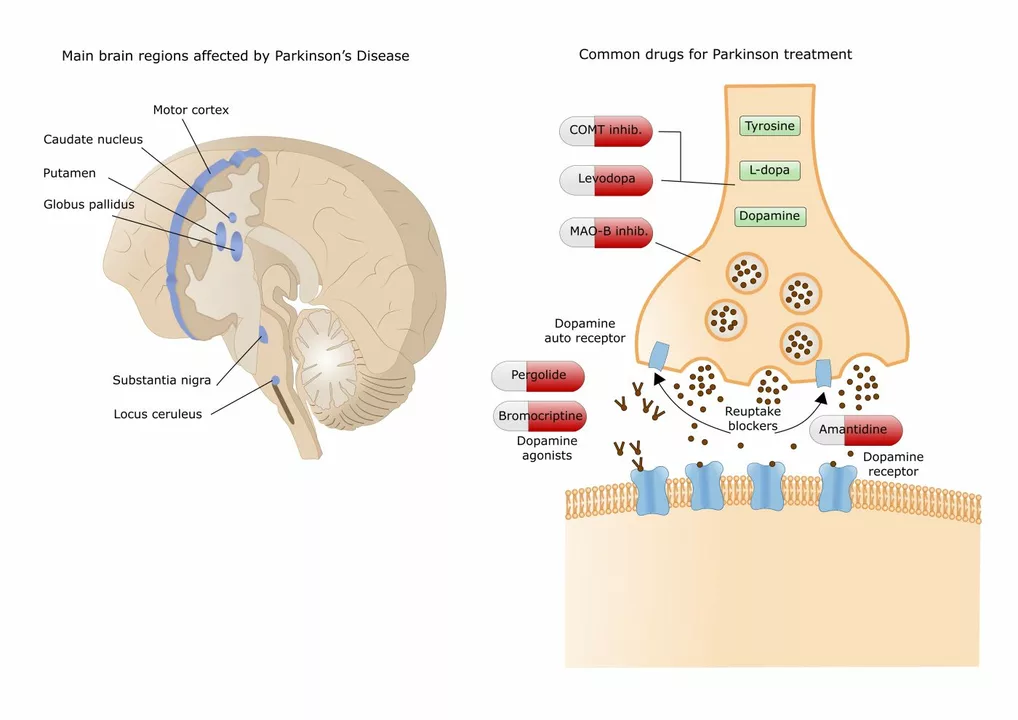

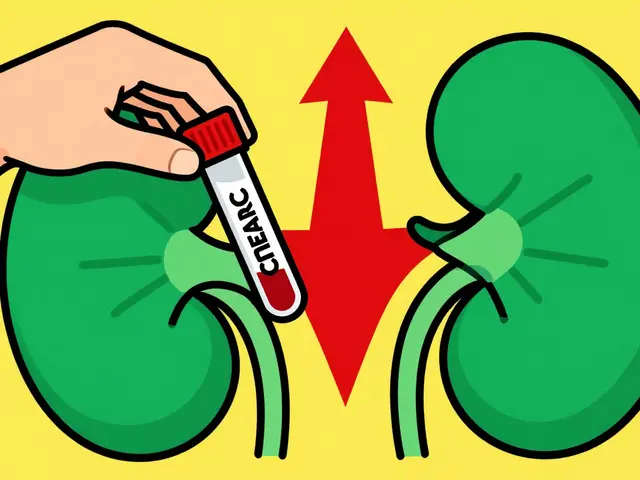
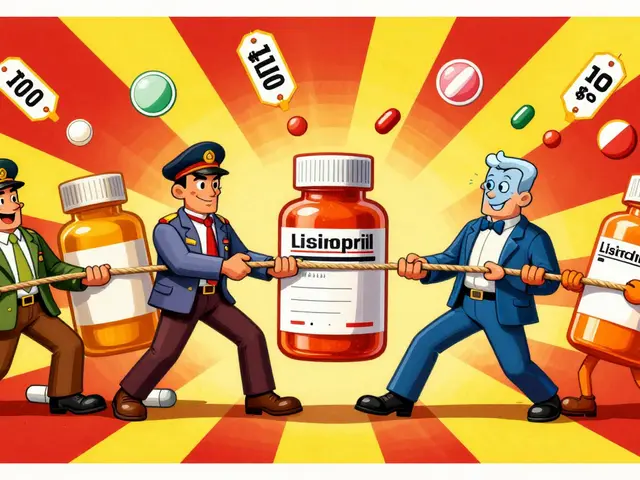
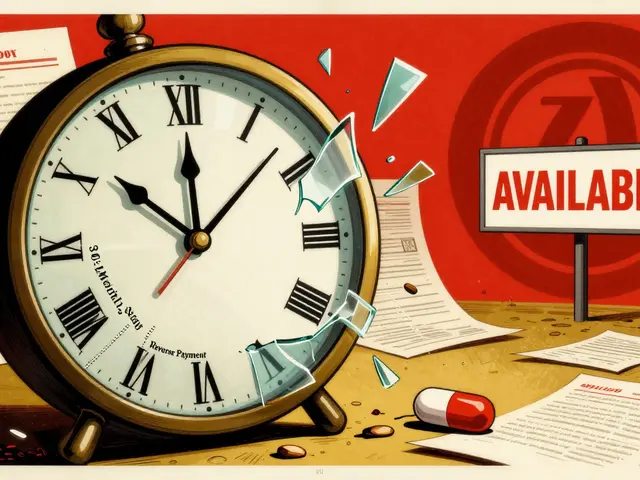
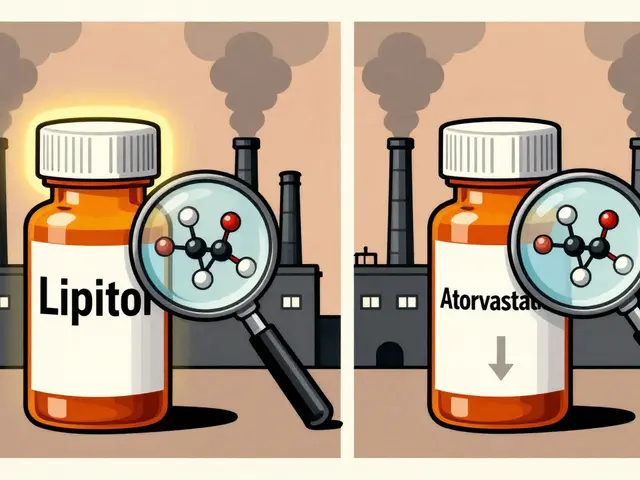
Taylor Smith
May 5, 2023 AT 21:45This is actually really interesting. I didn't know terazosin had any neuroprotective potential. My uncle's on it for BPH and his tremors seem a bit better lately. Maybe coincidence, maybe not.
Tammy Cooper
May 6, 2023 AT 04:26so like... i just took terazosin for 3 months cuz my doc thought it might help my dizziness and honestly i felt like a zombie but my balance improved?? idk man. maybe its the placebo but also maybe its the drug. i dont trust science anymore lol
Peggy Cai
May 6, 2023 AT 07:25People are so quick to celebrate pharmaceutical miracles without asking who profits. Terazosin is cheap. Generic. Why isn't Big Pharma pushing this harder if it's so groundbreaking? Coincidence? Or are they waiting to patent the next version? Wake up.
Alyssa Hammond
May 7, 2023 AT 02:48Let me break this down for you because clearly nobody else has the intellectual stamina to do it. Terazosin activates PGK1 which is involved in glycolysis and mitochondrial efficiency - that’s not magic, that’s biochemistry. But here’s the kicker: Parkinson’s isn’t just about dopamine. It’s about proteostasis collapse, neuroinflammation, and glial dysfunction. If terazosin only targets one pathway - and we don’t even know if it crosses the blood-brain barrier effectively in humans - then you’re treating a symptom, not the disease. And let’s not forget the orthostatic hypotension risk. Elderly Parkinson’s patients are already falling like dominoes. Adding a drug that drops BP? That’s not hope. That’s a liability wrapped in a clinical trial. And don’t get me started on the sample sizes in those studies. N=87? Really?
Jill Amanno
May 8, 2023 AT 12:10You think this is about science? Nah. This is about control. The system doesn't want you to heal. It wants you to take pills forever. Terazosin? It's been around since the 80s. If it worked, they'd bury it. But now they're spinning it as "new hope" because they need you to believe in magic bullets so you don't question the whole broken model. We're lab rats in a lab coat.
Kate Calara
May 10, 2023 AT 00:08terazosin... sounds like a code name for a CIA mind control program. why is it being pushed on parkinson's patients? who funded those studies? i bet the same people who made the flu vaccine. remember when they said vaccines caused autism? now they say terazosin fixes your brain? i smell a pattern. and why is everyone so quiet about the side effects? because they don't want you to know the truth.
Chris Jagusch
May 10, 2023 AT 00:35USA and Canada pushing this? In Nigeria we use herbs and prayer. You think a cheap blood pressure pill from America can fix what your ancestors didn't even know existed? This is cultural imperialism disguised as medicine. Our grandmothers knew more about healing than your lab coats.
Phillip Lee
May 11, 2023 AT 13:17The PGK1 mechanism is legit. It’s not hype. The data from the JCI paper is solid. But you’re missing the bigger picture - this isn’t a cure. It’s a modifier. Slowing progression is huge. We’ve had zero disease-modifying drugs for PD for 20 years. This could be the first. Stop acting like every breakthrough is a scam. The science is here. Now we need trials. Not conspiracy.
Nancy N.
May 12, 2023 AT 15:33i read this and cried a little. my mom has parkinsons and shes been on so many meds. i just want her to feel like herself again. i hope this works. please let it work.
Katie Wilson
May 12, 2023 AT 22:46I'm not saying this is fake but I'm also not saying it's real. The fact that it's a blood pressure med repurposed makes me suspicious. Like... why not just make a new drug? Because it's cheaper to rebrand old ones. I'm not buying it. Not yet.
Shivani Tipnis
May 13, 2023 AT 14:51This is the breakthrough we’ve been waiting for! Stop doubting! Stop overthinking! Science is moving! People are getting better! If you’re not excited, you’re not paying attention. This is hope. Real hope. Get on board or get out of the way.
Cindy Fitrasari S.
May 14, 2023 AT 02:49I'm just glad someone's finally looking at old drugs in new ways. So many times we overlook simple solutions because they're not flashy. I'm not jumping for joy but I'm definitely keeping an open mind. Maybe this is one of those quiet wins.
Priyamvada Toshniwal
May 16, 2023 AT 00:00I'm a pharmacist in Delhi. We've had terazosin on the shelf for 15 years. I've seen patients on it for BPH and some reported less rigidity. Not dramatic, but noticeable. I always thought it was anecdotal. This study makes me wonder if we were onto something. Worth discussing with neurologists.
Denise Wood
May 16, 2023 AT 15:02Important note: Terazosin’s half-life is 8–12 hours. That means twice-daily dosing is likely needed for consistent PGK1 activation. Also, it’s metabolized by CYP3A4 - so avoid grapefruit and certain antibiotics. And yes, the first dose can knock you out. Start at 0.5mg at bedtime. Don’t be a hero.
Andrew Butler
May 18, 2023 AT 04:49The PGK1 pathway is a red herring. The real mechanism is alpha-1 adrenergic antagonism modulating astrocytic glutamate release. But nobody talks about that because it’s too complex for your average Reddit user. Also, the study used a 5mg dose. Most BPH patients get 5–10mg. That’s not therapeutic for CNS. You need 20mg+ for neuro effects. So either they’re lying or the patients are getting subtherapeutic doses. Either way, it’s not ready.
Taylor Smith
May 18, 2023 AT 18:57That’s a fair point about the dose. I just checked my uncle’s script - he’s on 2mg once a day. If the neuro effect needs 20mg, he’s not getting it. That’s... kind of a bummer.